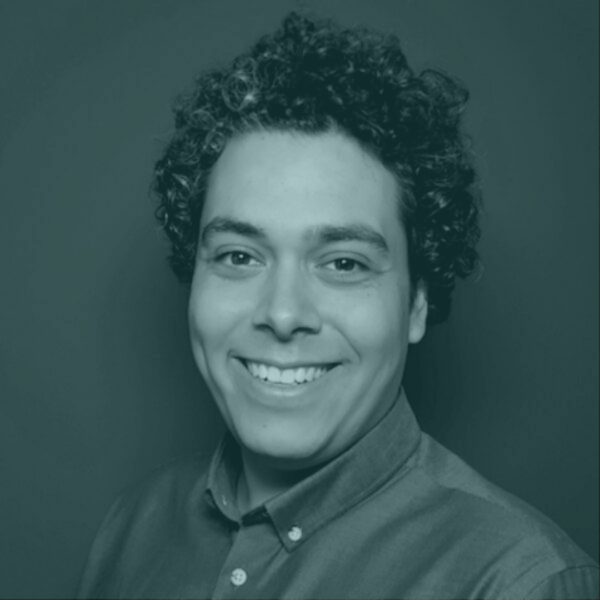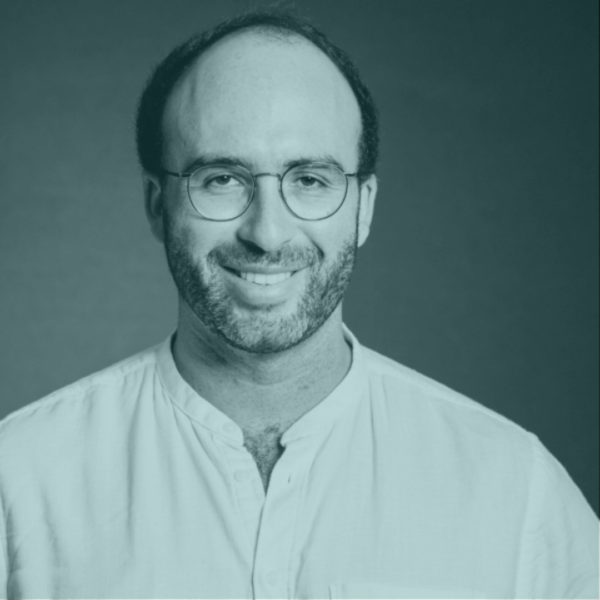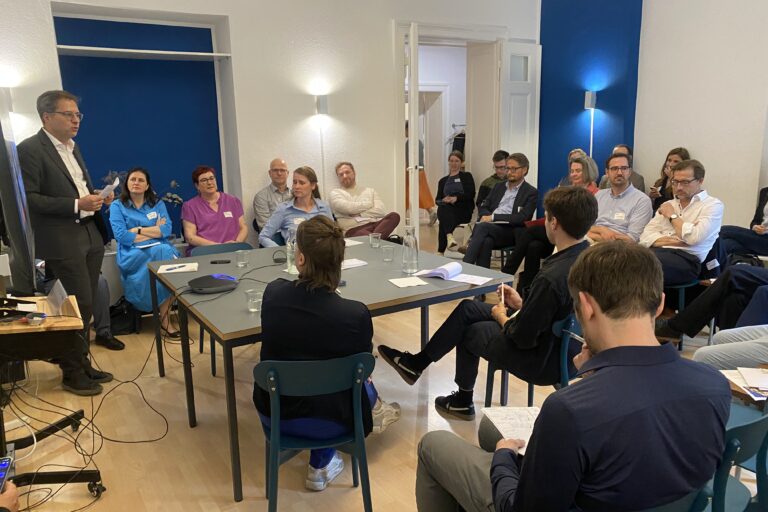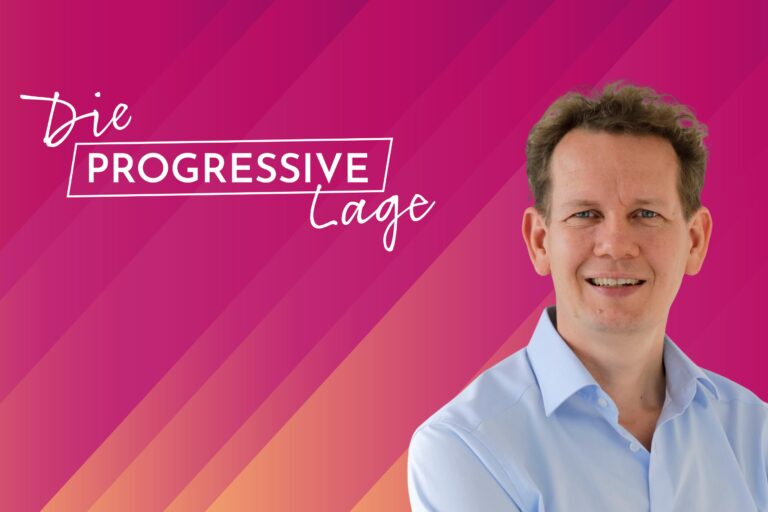In September 2019, Das Progressive Zentrum hosted two workshops in Gdansk and Lisbon with 42 civil society representatives from 23 European countries. The workshops are part of the pilot project ‘European Hub for Civic Engagement’ (EHCE), which aims to create a platform for the exchange of ideas, knowledge and best practices at the intersection of civil society, digital technology, and politics. During the workshops, we developed concrete features that such a platform could provide to further civic engagement and transnational collaboration.
The kick-off workshops in Gdansk and Lisbon followed the EHCE’s bottom-up approach, which involves civil society actors in the development process and guarantees tailor-made solutions for the unique daily working challenges of civil society actors. Using design thinking elements, civil society representatives from 23 different European countries elaborated on the exact challenges that hinder engagement and were able to deduce key takeaways from them for the creation of the EHCE platform. The workshops also made visible that an enhanced collaboration of civil society actors and its Civic-Tech community is an indispensable prerequisite for a collaborating European civil society in an integrated Europe.
Digital advances have the potential to interconnect individual civic engagement and thereby strengthen a common European civil society. This fosters cross-border solidarity, collaboration possibilities and an efficient transfer of knowledge. However, although digitalisation has the potential to empower, participants reported the difficulty of obtaining efficient digital tools, gaining digital know-how, and due to budget restraints, many organisations cannot afford the development of user-friendly tools with a thought-through outreach. The following report expands on the three main challenges civil society is currently facing in Europe and how the EHCE can build a digital platform to empower civil society actors.
Civil Society’s Three Main Challenges and Key Takeaways for the EHCE
First Challenge: In Europe we are seeing a splintering of societies through a polarised discourse
Most participants reported an increase of populism in their countries. They noted how this has led to several actors within the public sphere, in addition to the state, expressing anti-civil society sentiment. This has contributed to an increase of polarized discourses within many corners of society. Especially during elections, these polarized public discourses have problematically taken center stage by often using superficial or non-factual statements. Additionally, many participants mentioned how various forms of media take a central role in spreading these polarized discourses, which in turn is often harmful to civil society. Most troubling is how the increase of polarized discourses have put civil society organizations permanently in the defensive: civil society actors are only able to react to the restrictive policies and discourses caused by polarization, ripping away any capacity of building an inclusive and forward-thinking society.
Takeaway: The EHCE should foster community building and advance ideas to combat polarization, raise civil society voices across Europe, and increase civil society’s agenda-setting power by….
- being a safe home-base for networking – many participants highlighted the usefulness in having a central location to share knowledge, and find partners using a “filter-function”.
- creating options for in-person contact – in-person meetings are what bring organizations together.
- supportive learning – there is a need to test ideas and gain feedback with experts from the field and funders.
- offering co-creative spaces – participants would like physical co-creation spaces, for inspiration, brainstorming, and events.
Second Challenge: There is increasing harassment of civil society actors by the state and from within the public sphere
Several workshop participants reported that sudden changes within the legal frameworks of their home countries have created shrinking spaces that are making civil society actors become more vulnerable. Concretely, several attendees have experienced violent suppressions of peaceful demonstrations and the disregarding of marginalized groups and their needs. Civil society actors are increasingly fearing state monitoring and the right to express their opinion. The effect of this pressure is supported through anti-democratic actor’s abuse of social media and bots to spread hate-speech. Civil society organisations also face smear campaigns against them, for instance, for receiving foreign funds. A result of this development is that anti-democratic expressions are more accepted and that it has become a reputational risk to work with critical organisations. It was further elaborated that shrinking spaces often evolve in a linear process, which implies that there can be takeaways from countries where the anti-democratic process already exists, highlighting the need for exchanging ideas and resources across borders.
Takeaway: The EHCE should support civil society actors by providing them with practical resources to safely engage in advocacy
- offering knowledge about advocacy work – transfer of know-how on “how to advocate” between local and the European level, providing access to tools and training.
- by creating space for collaboration – users could use the EHCE to coalition partners for advocating, creating and promoting a campaign.
- by enabling people to ask for information – organizations should present questions that are matched to an answering resource.
- by being secure – all actors on the website must feel safe and engage in consenting and transparent interactions.
- by relying on fact-checking – the EHCE needs to ensure high quality and truthful content.
Third Challenge: Funding is difficult to receive due to governmental pressure, bureaucracy, a lack of sustainable sources, and knowledge on how to apply
Workshop participants discussed that opportunities for engagement are shrinking due to difficulties accessing funding. State funding for civic engagement has been drastically cut in some countries, certain administrations only promote officials to posts if they agree to withhold funding to civil society actors, and companies have to consider reputational risks when financially supporting civil society actors. Furthermore, funding from abroad is often not an alternative to a lack of domestic funding, since it could have the side-effect of discrediting civil society actors in countries with anti-civil society public discourses or is difficult due to laws that restrict foreign funding. These developments have many repercussions, as even bureaucratic tools, such as reports and taxation regulations are used for the harassment of civil society organisation. And if funding is even received, the sustainability of funding is constantly in doubt. This issue is even more challenging for start-up and young organizations; a lack of knowledge on how to draft applications only strengthens the barriers to access funding.
Takeaway: The EHCE should make funding possibilities and application know-how more accessible by…
- facilitating relationship building – the EHCE could enable people to get in contact with appropriate funders and support these relationships
- offering knowledge – the EHCE should be a place where users can get information on how the funding process functions and how to write a successful application.
- by supporting transparency – the EHCE should fight against the blurriness of funding structures, and encourage processes that are clear and transparent.
Gdańsk 2019
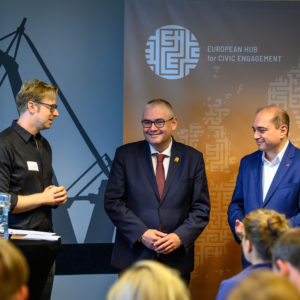
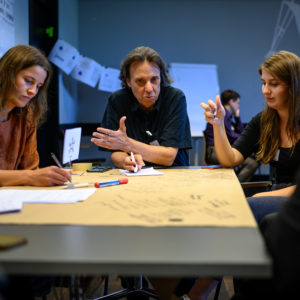
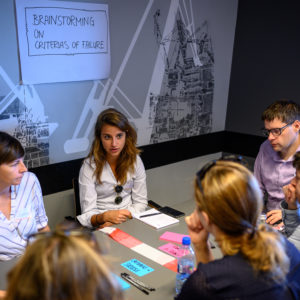
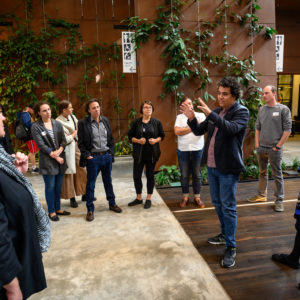
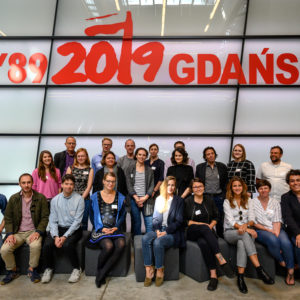
Lisbon 2019










Next step: Tallinn
A successful implementation of the EHCE requires taking the above-mentioned challenges into account when creating the platform. To draw on the full potential of digitalization, it is necessary that tools become more adjusted to the discussed needs of civil society actors. A necessary factor for this goal is to enhance the communication between civil society actors and it’s Civic-Tech actors. Therefore, the main topics extracted from the two workshops: challenges civil society actors face, ideas for collaboration and knowledge-sharing, will be processed into prototypes at a hackathon. The hackathon will take place in Tallinn from October 16th-18th and will be co-facilitated by our cooperation partner DATA4CHANGE. During those days, civil society representatives from our workshops in Gdansk and Lisbon, as well as developers and web designers will team up with the aim to support civic engagement by creating the first prototype tools for the EHCE. Check back soon for our report on the results from the Tallinn hackathon!
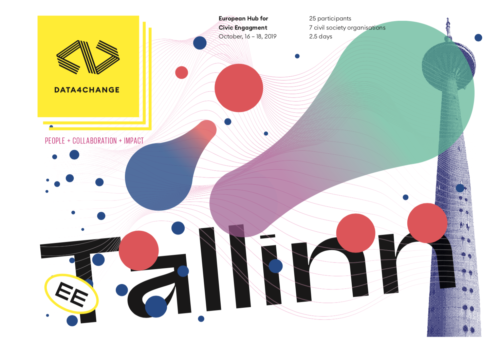
Authors
Funded by



